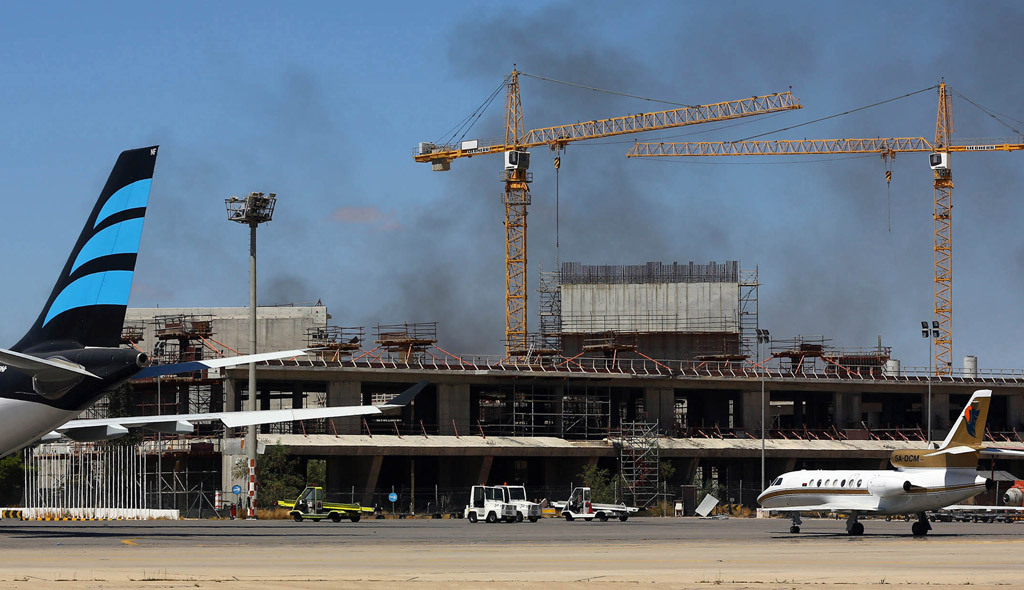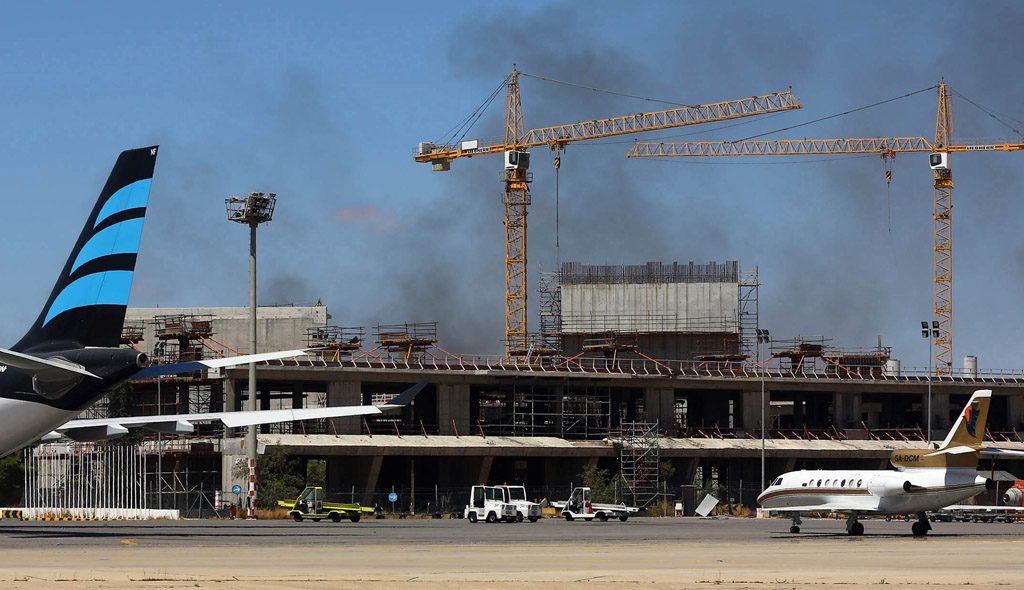Libyan authorities have closed the only functioning airport in Tripoli after an airstrike Monday, as a battle for the capital continues between rival forces in the country.
Security officers at Mitiga airport east of the Libyan capital said that no side had yet claimed responsibility for the attack, which hit the runway but caused no casualties. Forces loyal to military commander Gen. Khalifa Haftar have been continuing a push aimed at taking the capital.
Libya’s U.N.-backed prime minister, Fayez Sarraj, has called the action by Haftar an attempted coup. Haftar and his forces appear to have gained ground along the outskirts of the capital, but Sarraj said government troops are prepared to confront them.
The United Nations issued an “urgent appeal” for a two-hour truce in the suburbs of Tripoli to evacuate civilians.

U.N. spokesman Stephane Dujarric said the truce would allow for “the provision of emergency services and the voluntary passage of civilians, including those wounded, from the areas of conflict.” He said the clashes are affecting residential areas, and “an unknown number of civilians are unable to flee these locations.”
Dujarric said that 3,400 people have been displaced by the latest violence, which began on Thursday.
The International Rescue Committee estimates 21 people, including two health workers, have been killed in the fighting, warning that the number of those in need of humanitarian assistance will rise as the conflict continues.
The U.N. envoy to Libya, Ghassan Salame, condemned the attack on Tripoli’s airport. In a statement Monday, he called the incident “a serious violation of humanitarian law.”
U.S. Secretary of State Mike Pompeo called for an immediate halt to the advance by Haftar’s forces and said all of the parties involved “have a responsibility to urgently de-escalate the situation.”
In anticipation of violence, the United States has pulled a contingent of troops out of Tripoli.
“The security realities on the ground in Libya are growing increasingly complex and unpredictable,” said Marine Corps Gen. Thomas Waldhauser, head of U.S. Africa Command.
The U.S. has maintained a small number of troops in Libya to provide support for diplomatic missions, counterterrorism activities and improving regional security.

